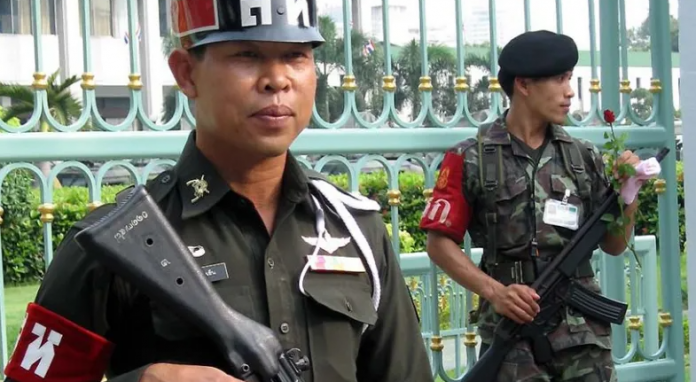Back in April this year, a forty day pause in violence was brokered by the Malaysian mediator in peace talks between the separatist umbrella group MARA Patani and the Thai military. However, this was broken very soon after coming into force with attacks that killed a villager and three bomb disposal squad police.
What made the break in the ceasefire even more surprising is that it came from elements within the Patani United Liberation Organization (PULO), which hasn’t been active since 2016 on the ground. According to PULO leader Kasturi Mahkota, the attacks took place because the PULO-MKP (Majlis Kepiminan Pertubuhan) faction was not included within the MARA Patani umbrella in peace talks with the Thai Government.
There has also been friction between various groups under the Barisan Revolusi Nasional (BRN), when elements of the BRN engaged in direct talks with the Thai Government in 2020, outside the MARA Patani framework.
Although PULO and BRN are the oldest separatist groups in the Thai deep south, there are now a number of quasi-autonomous cells that are not under the direct control of any of the main groups. On a recent visit to the area, the author personally saw and was told of other violent incidents by local cells not reported in the media. More road-side bombs are being used to disrupt transport throughout the region. The continued operation of these groups puts stress upon the peace negotiation process, undermining the legitimacy of MARA Patani, as an organization able to deliver any real commitments.
BRN’s subtle strategy change
Over the last year, the BRN Information department has taken up some issues concerning local citizens, such as opposition to the proposed Chana Industrial Estate. Nothing more than statements released on YouTube has come of this shift in focus.
However, the recent coordinated attacks on 16 chain convenience stores and a petrol station, according to the BRN statement made just after the attacks, indicates a more away from attacking government installations and infrastructure, to the destruction of the property of business conglomerates owned by corporations allied with the Prayut Chan-Ocha regime.
These were the largest coordinated attacks in years, and were followed with a clear statement opposing the presence of regime friendly businesses in the deep south. BRN went on to say the presence of these businesses are harmful to the local economies, where they come in through low pricing, and product deception to soak up local business at the cost to local entrepreneurs.
Its too early to see if these latest attacks were the opening salvo of more attacks on Prayut regime friendly businesses, or a ‘one-off’ operation. If this strategy continues, it will show the strength on the ground of BRN insurgents, and strike Prayut allies in Bangkok.
All sides to the conflict claim the increase in violence across the deep south will not hinder the next round of peace talks due to be held in the next couple of months. However, the legitimacy of MARA Patani to represent the total insurgency movement is compromised. There is also some backlash from local community groups across the region, as innocent people are falling victim to these attacks. By Murray Hunter/ EURASIAREVIEW




